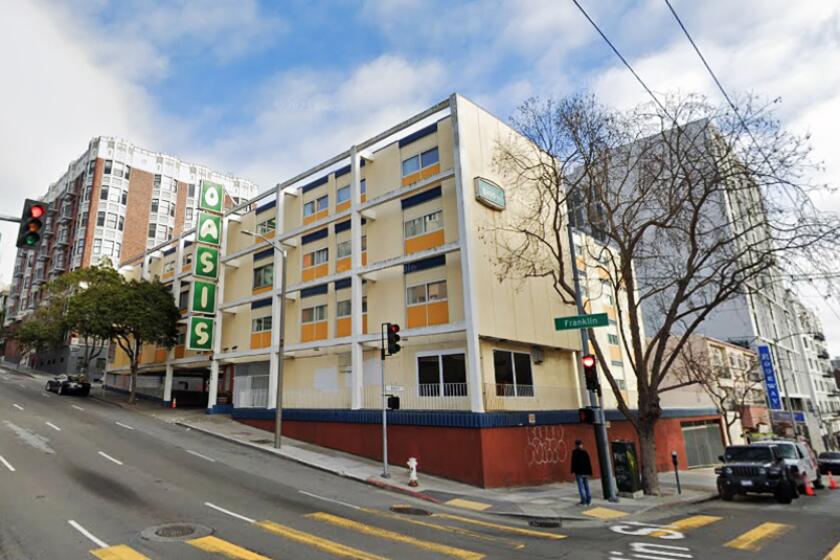Police Review Issues: Yes on F and No on G
Not too long ago, San Diegans were struggling to create some procedure whereby citizens could review the actions of the city’s police officers.
Now voters have three approaches from which to choose: The current system and two on the November ballot, Propositions F and G.
The current Civilian Advisory Panel on Police Practices, which will remain in effect if both ballot measures are defeated, was appointed last year by the city manager and the police chief. Two members of the panel evaluate completed police internal affairs investigations, reviewing personnel files, evidence and tapes of interviews with witnesses and officers. They report to the whole board, and, if any questions remain unanswered, they can ask the police for further investigation, which has apparently happened on a handful of occasions.
But, in the last analysis, the panel has agreed with the Police Department’s disposition in each of the first 130 cases it reviewed.
The outcome might have been the same with an independently appointed body with its own investigative powers. But the effectiveness of any police review system is measured largely by public perception, and a board appointed by the police chief is unlikely to be perceived as adequate.
Under Proposition G, sponsored by City Councilman Ed Struiksma (a former police officer), the police chief would have no say in the appointment process. Otherwise, the system would be the same. While this would erase the appearance of favoritism, it still leaves citizens without a voice in the investigation, which we feel is necessary to reassure the public.
Proposition F, written by the council-appointed Charter Review Commission after numerous public hearings, would give the city a much stronger form of civilian review. It would establish a Police Review Commission appointed by the mayor and the City Council, and the commission would have its own investigatory staff as well as subpoena power.
We think this is the best choice.
But it shares one Achilles heel with the other two: State law prohibits the disclosure of any police review results--even the most anonymous, statistical summary. The law is designed to protect the confidentiality of personnel procedures involving police officers, which is important. But, as the law is written and was recently interpreted, it deprives the public of legitimate and reasonable information on the conduct of one of society’s most powerful institutions.
Without a change in this law, none of the systems is likely to be very effective in maintaining public confidence in the police.
The Police Review Commission would also face another, related hurdle. The Police Officers Assn. says it would fight to prevent the commission from having access to internal affairs investigations, as the current panel has. The union’s argument is that current panel members, by virtue of being appointed by the police chief, are police employees and commission members would not be. So, the union says, the confidentiality restrictions would apply.
The union does not try to invoke this argument with regard to Proposition G, which the POA supports, even though the police chief would be removed from the selection process. This shows the hollowness of the POA argument.
Access to those investigations is crucial. The commission is unlikely to have a budget sufficient to reinvestigate every complaint, and there is other information in the police file, such as the arrest record of witnesses and complainants, which the commission would need to make a fair evaluation.
Common sense, and the experience of the current panel, says that only in a minority of instances are the civilian reviewers going to want to investigate further on their own. Most of the time, a review of investigation done by the Police Department will suffice.
This access argument, which probably will have to be settled in court, is a smoke screen for the union’s principal concern: possible political motives of a commission appointed by elected officials. We agree that politicization of the process could be damaging, and is something the council would have to guard against.
But final say on discipline rests with the police chief, and an officer who feels unfairly treated can still appeal to the Civil Service Commission.
San Diego has moved a long way toward civilian review, but it’s time for more accountability, which Proposition F provides.
We recommend a yes vote on Proposition F and a no vote on Proposition G.
More to Read
Start your day right
Sign up for Essential California for news, features and recommendations from the L.A. Times and beyond in your inbox six days a week.
You may occasionally receive promotional content from the Los Angeles Times.






